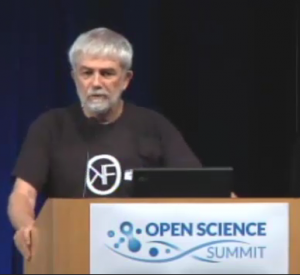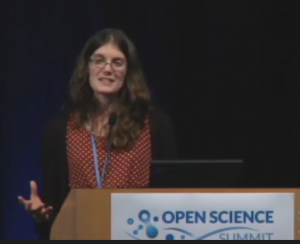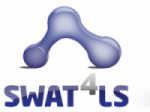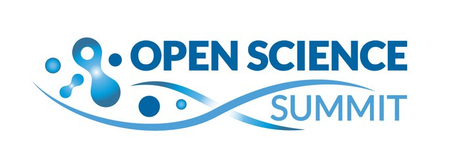OKFN at #oss2011 – Open Research Reports
Semantic Web Applications and Tools for Life Sciences Hackathon
When: Tue 6 Dec (17:30 to late), Wed 7 Dec (08:30 to 18:30)
Where: University of London Union, Malet Street, Bloomsbury, London, WC1E 7HY.
How: More details and FREE registration
If you are keen to stay up to date with progress on ORR or to participate in the hackathon remotely then contact jenny.molloy@okfn.org for more details.
Peter and I presented on the need for access to disease research and you can find our slides, video and a follow up blog from Peter.
Open Research Reports were conceived after the Beyond the PDF meeting during a conversation between Peter Murray-Rust (University of Cambridge), David Shotton (University of Oxford), Leslie Chan and Cameron Neylon (STFC). The idea is to make disease research as openly accessible as possible to the people that really need it. This includes healthcare workers and researchers in developing countries, patient groups and patient themselves as well as the interested public, who are currently charged around $35 for 24hr access to a single paper.
Why ORRs?

Multiple studies (e.g. Pakenham-Walsh and Bukachi, 2009, Yamey 2008) have demonstrated the lack of information available to healthcare professionals in the developing world and there have been powerful recent expositions of the struggle patient advocacy groups and patients themselves face to access the medical literature. Lawrence Lessig describes during a lecture at CERN (video) the cost he would have incurred researching his daughter’s jaundice had he not had institutional access. Martyn Tenenbaum presenting at #OSS2011 (video) described the resistance Cancer Commons faces when trying to liberate cancer datasets for patients. OKFN and ORR supporters Graham Steel of the CJD Alliance and Gilles Frydman of ACOR have similar tales to tell from their patient advocacy work. Peter has recently encouraged use of the term ‘scholarly poor‘ to describe the vast majority of the worlds population who have no access to the scientific literature, despite the fact that in many cases they have funded the advances in knowledge through public funding.
While rapidly altering our slides to avoid repetition following the first few talks at #oss2011, Peter decided a snappy message was required and originally went for ‘open knowledge saves lives’, but after conferring with those of us around the table, decided to go for the negative ‘closed knowledge kills people’. He states on his blog that he takes full responsibility for that controversial statement, but the applause which the statement received demonstrates there is concurrence and attendees approached me later to express their admiration that someone had come out with so plain a message.
However, not everyone is in agreement and if you are not subscribed to the OKF open-science mailing list you should check out the archives for a discussion of the relevance of open access for the developing world and specifically its potential impact on healthcare. The lack of hard empirical evidence and quantitative data to back the statement that ‘open knowledge saves lives’ or the converse was discussed. Most supporters of the statement do appear to rely on case studies and anecdotal evidence, but for people in the global health community it does not seem to be as radical an opinion as some working group members felt. Hopefully the discussion will continue and we can all learn something about the issues with open access advocacy and the developing world. One resource to look out for are talks from the just ended BioMedCentral Open Access Africa conference, where several talks revolved around healthcare information and will hopefully be posted online soon.
What do ORRs offer?

Closed is not just a matter of licensing, but of discoverability and access, hence ORRs aim to pull together the corpus of open access literature on a certain disease and also create a mechanism of extracting the important information from closed access papers to generate an open summary.
The latter angle is being addressed by David Shotton and Tanya Gray (both University of Oxford), who have developed an XML form based on the Minimal Information on Infectious Disease Investigations (MIIDI) standards and underlying ontologies, which can be completed by researchers and potentially students or even lay people, although the issue of provenance and credibility is an important one to consider and the exact utilisation of the form is still being discussed.
We hope to build on this and also explore the options for pulling together the open access subset of PubMedCentral using open bibliographic data. We’re starting at a hackathon on Semantic Tools for the Life Sciences in conjunction with DevCSI (JISC funded) and the Semantic Web for the Life Sciences (SWAT4LS) conference
Semantic Web Applications and Tools for Life Sciences Hackathon

When: Tue 6 Dec (17:30 to late), Wed 7 Dec (08:30 to 18:30)
Where: University of London Union, Malet Street, Bloomsbury, London, WC1E 7HY.
How: More details and FREE registration
If you are keen to stay up to date with progress on ORR or to participate in the hackathon remotely then contact jenny.molloy@okfn.org for more details.
While the hackathon encompasses the wider area of semantic applications for the life sciences, we will have a framework in place to enable participants to make real progress with ORR related activities if they so choose and we look forward to driving this endeavour forward. Some of the ideas that have already arisen include:
- Forming geographic and chronological displays of publications which could then be layered with further datasets or annotations e.g. mapping malaria research onto maps of endemicity to reveal how much research is coming out of endemic nations, as encouraged by recent funding initiatives.
- Marking up papers for usefulness for certain groups, therefore generating custom sets for patients, healthcare practitioners, students etc.
- Querying bibliographic data to answer complex queries such as whether rare disease have a lower proportion of open access publications
- Populating ORR forms and generating a larger corpus of material for future work
The use cases for ORRs are numerous and with the energy and drive of all those involved the project we hope to have some workable prototypes and many more ideas soon. Please join us at the hackathon or get in touch if you’d like more information!

A project much aligned with Open Research Reports – a repository of evolving reviews on research topics – is currently up on RocketHub at http://rockethub.com/projects/3755-beethoven-s-open-repository-of-research as part of the SciFund Challenge at http://scifund.wordpress.com/ . Naturally, collaboration would be nice.
to Jenny Molloy , Peter Murray-Rust
I like the idea behind the ORR and have been in contact via Mail with PMR
My interest is that MalariaWorld.org a platform for malariaresearchers is ideal for spreading the idea to people in developing countries, in fact we have had the principle of open access especially for malaria research as a slogan of the Site since its inception.
I would love to collaborate with you on ORR in the OKFN (I am registered as a user) .
regards TOM